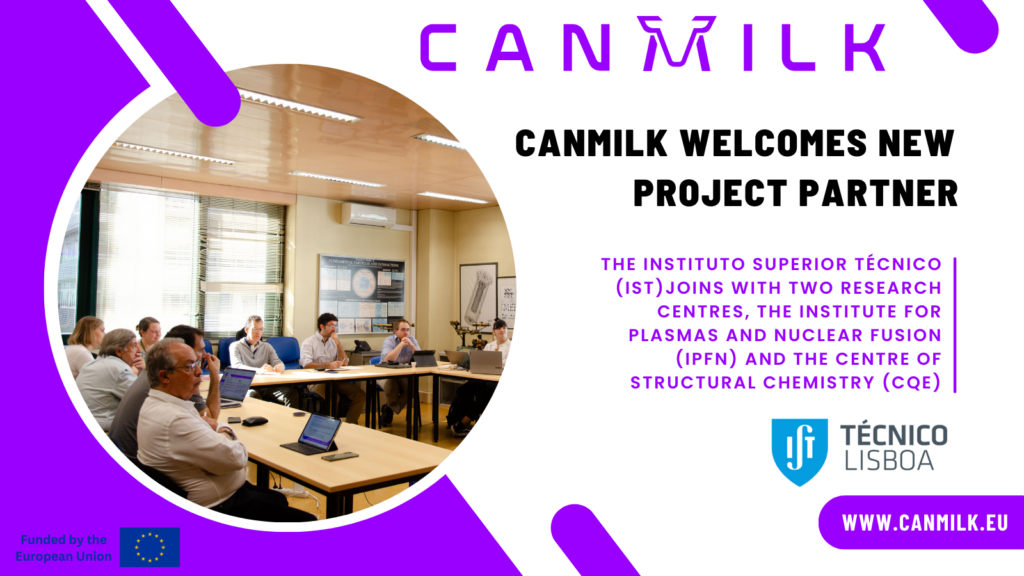
Methane, a potent greenhouse gas with about 28 times the global warming potential of CO2, poses a significant challenge in agriculture. In cattle barns, methane concentrations are diluted to levels that make conventional mitigation techniques, such as combustion, impractical. CANMILK aims to address this challenge by developing a novel technology to convert methane into CO2 using non-thermal plasma – an innovative and low-cost solution for ppm-level methane emissions.
The new Hop-On partner, IST, will enhance the project’s technical capabilities by developing and validating advanced models for methane and plasma interactions with catalytic surfaces. Their expertise in methane oxidation and surface kinetics will be vital in understanding the key reactions that drive methane conversion.
IST’s role in the CANMILK project includes:
- Plasma modelling and diagnostics: Development of plasma-methane interaction models using deterministic rate-balance equations and kinetic Monte Carlo methods to simulate the reaction of methane on catalytic surfaces. These models will help identify key chemical pathways and barriers to efficient methane oxidation.
- DFT studies: Density functional theory (DFT) studies to generate data on the interactions between methane, plasma products and catalyst surfaces.
- Operando FTIR and Post-Plasma Catalysis Tests: Perform real-time experiments under thermal and post-plasma conditions to validate the models and optimise catalyst selection for methane conversion.
- Integration into the WP2 model: The validated models will be integrated into the Work Package 2 (WP2) simulation framework to support the broader objectives of the CANMILK project.
The knowledge gained through these controlled experiments and validated models will be crucial in identifying the best conditions for methane oxidation, including the optimal choice of catalysts and operating parameters. By integrating these models into gas-phase and CFD simulations, the new Hop-On partner will contribute significantly to the development of low-cost, scalable methane conversion technologies.
The consortium is excited to welcome IST and looks forward to the expertise and insights they will bring to the project. Their collaboration marks a significant step forward in addressing the pressing issue of methane emissions in agriculture.